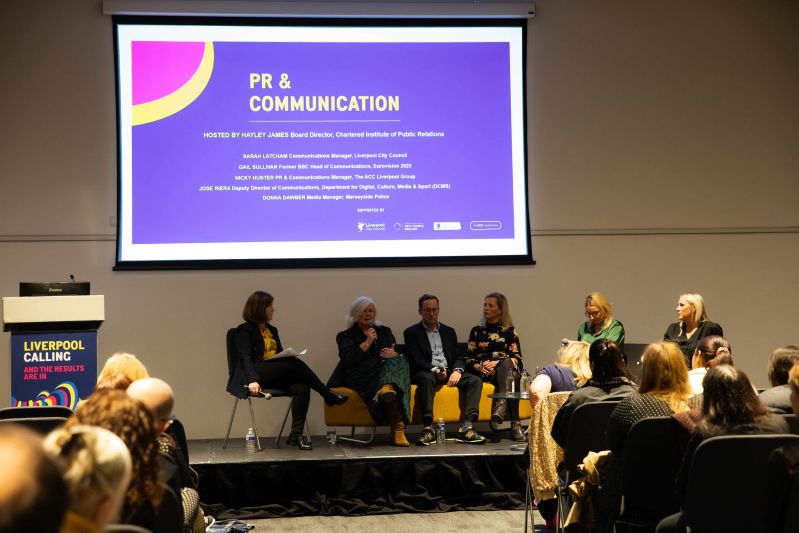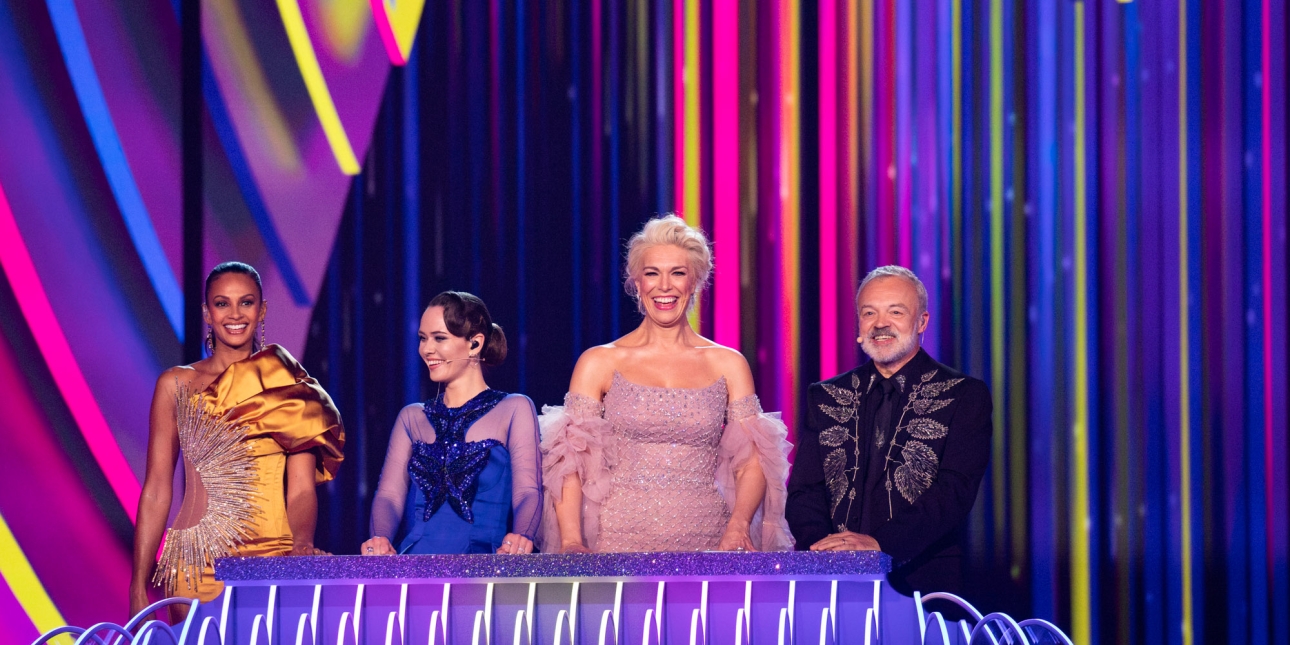How PR teams worked together to make Eurovision in Liverpool a success
Six months after Liverpool hosted the Eurovision Song Contest, public relations stakeholders gathered in the city to discuss the vital role that comms professionals played…
One of the many benefits I've found working in PR is, as a community, we’re pretty good at sharing and working together, even when the going gets tough.
Last month I had a special window into a brilliant example of this, when I was asked to chair a panel as part of Liverpool Calling, the closing event of Eurovision 2023.
The event, held at the M&S Bank Arena where so much of the show centred, was a chance for partners across the city, the UK, members of the Ukrainian community and guests from Malmo (2024 hosts), to dissect and debrief on what happened, what was achieved, and what could be learned.
We’ve heard a lot in recent times about the reluctance of some cities to host major cultural and sporting events due to the costs and impact on their places. Liverpool undertook a forensic data gathering exercise on the event to ensure that the legacy of Eurovision in the city was captured and articulated in a sort of ‘annual report’ of the event.
The PR team that worked on Eurovision spanned several public and private sector agencies, with most of the team having to fit this in alongside their day job. The comms teams from Liverpool City Council, Merseyside Police, ACC Liverpool Group, the BBC, and Dept of Culture, Media and Sport (DCMS) formed their own super group to work through the complexity of the programme.
Twice the work in half the time
A year earlier, on 7 October 2022, Graham Norton revealed Liverpool was going to be the host city. It was a surprise to start with, as many had already written the city off. I certainly hadn’t, but perhaps being a Liverpool fan I don’t have it in me.
The team had half the time to do twice the work, which might sound familiar to many of us, but even by this city’s standards it was a stretch. It already had a great back catalogue of large-scale cultural events including the infamous Capital of Culture year, the Giants, River of Light, Three Graces visit and more besides. However, Eurovision demands more.
Let's start by hosting someone else’s party in your house. This was not the UK’s win, it was Ukraine’s, and a significant amount of pre, during, and post event activity was developed to ensure Ukrainians felt home from home in amongst it all. Ukrainian culture, art, and its iconic flag were all over the city before, during, and after the event.
Then there was the time. A country [usually] finds out it's hosting Eurovision when the winner is crowned a year beforehand. Liverpool found out it had won hosting rights six months before the show. Would the team have done anything differently if they’d have had more of it? We’ll never know, but it certainly sharpened minds and, if anything, created a quick glue to bind the different partners together.
And then there’s the security. Liverpool had experienced several high-profile incidents in the months leading up to the announcement and, like most police forces, Merseyside Police had a huge operational challenge already and Eurovision added hugely to this.
What did we learn?
So, when we sat on the PR and communications panel at the post-event debrief, what did we learn?
- Teamwork was absolutely key. The team, some of who had worked together previously but not consistently, respected each other's skills, knowledge, and perspective.
- Creating a plan, sharing it, getting buy in, and sticking to it enabled activity to go ahead smoothly and without issue. This also meant that the asks of others were well managed as stakeholders had bought into the plans so understood when their work didn’t take priority.
- Think about your KPIs, share them and work together. The BBC wanted eyes on the telly, the council wanted visitors to the city, the police wanted to make sure that visitors to the city could enjoy their time at Eurovision safely, and the M&S Bank Arena wanted bums on seats. They could get everything they wanted if the kept each other involved.
- Make your staff the stars. Scousers don’t need much reason to throw a party, and the sense of fun across the city helped the police protect the city, and council staff get on with the providing of essential services. They could do it with a bit more sparkle than usual too.
- Build momentum. Everyone wanted to be part of this, and bringing the business community in through networking groups and positioning as an opportunity for their own local PR and marketing enabled Eurovision’s reach to extend beyond the city and to the wider city-region. The world’s media were descending on Merseyside and needed content, so with shops and offices adorning their premises with the branding it meant they could gain some of the show’s glow.
- If you’ve planned for most things, it makes the things you can’t plan for much easier. A visit from the King in the week of the heats, something that would have taken months to organise, could be pulled off in weeks due to the strong ties between the teams and the clarity over what else was taking place.
Culture Liverpool has a great overview of the impact of Eurovision: The Results Are In - Culture Liverpool and while it's easy to look at the pure event facts and stats, there was a huge amount of academic research incorporated into the wider review to ensure the learnings were captured not just for Eurovision, but for cultural impact more widely. Health and education were also measured as part of the effect of the event.
One fact I also really loved was from the police: just three arrests made across the whole event. For a major UK city on a normal weekend that is unheard of. A sign of the respect and impact of buzz created by Eurovision.
I’ve always enjoyed Eurovision. To see how a country in the grips of a war can continue to share its culture and have others embrace it shows the power of culture to connect in ways we hadn’t seen before.
A huge thank you to Sarah Latcham (Liverpool City Council), Donna Dawber (Merseyside Police), Gail Sullivan (BBC), Jose Riera (Department of Culture, Media and Sport), and Nicky Hunter (ACC Liverpool Group) for sharing their experiences with me and the rest of the audience.
It was great to see and hear everyone come together for this party like no other.
There’s a pretty impressive video of how it all began too.
Hayley James is a CIPR board director and interim head of communications and campaigns at NCT Charity.

.jpg&w=728&h=90&maxW=&maxH=&zc=1)
